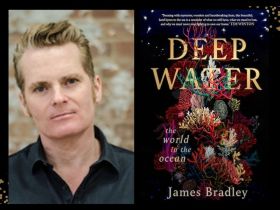Image: shutterstock.com
Individuals who build creative businesses or take up opportunities as they come need an entrepreneurial spirit. Add to this the new age of start-up culture and the growing task economy in Australia and you have a culture that thrives on ideas. But how do we communicate these ideas effectively?
Good communicators use language in creative ways, adapting to the 140 character limit challenge on Twitter without falling into the trap of dull brevity or cliché. They know good communication is more complicated than many people think and that using language effectively can be a way to cut through the noise and get a person noticed, particularly online.
For social media writers, journalists, report writers, and many others who operate under the mantle of “The Professional Writer”, the approaches and strategies they employ go deeper than just basic communication. Quite often, these writers spend years developing their skills and many go on to complete postgraduate studies in communications in order to further fine-tune them. Here are five things many of them learn along the way.
1. Know when to stop
For a professional writer, it is not uncommon to have a client or colleague pull your work apart because “they know what they’re doing.”
‘Writing is a funny one. A lot of people think they are writers just because they write a lot of emails every day, so of course they know what they’re talking about,’ said Jonathan Rivett, who runs his own copywriting and editing business, The Ink Bureau.
Unlike graphic design for example, where clients often say “I have no idea so I’ll leave you to it because I’ve never done it before”, professional writers regularly come across clients who think they know better, said Rivett. In this situation, good communication means being able to persuade not just the reader, but often the person you write for.
‘As a writer and as a communicator generally, I think persuasion is kind of your game. In my case if I come across a client who says I don’t like what you have written, as a communicator my job is to say “I can see your point of view, but here is what you need to consider about it. Here is why I have written it this way.”’
On the other hand, it is also important to know when to stop.
‘Another important part of really good communication is knowing when to hold back and go “Actually this isn’t a fight worth fighting, I’ll leave this one alone,”’ said Rivett.
2. Create a distinctive voice
For those who don’t work as professional writers, good communication is a necessary part of running a successful business. ‘You have to be able to explain what you’re good at and what your ideas are. If people can’t understand what you’re on about, they won’t work with you,’ said Rivett.
To communicate your ideas it is important to use the appropriate language. To communicate well you shouldn’t rely on clichés or a boring, default office language. For example, if you are telling someone, “I’m a creative person who has interesting ideas” make sure you are communicating this in a creative way or you will undermine your argument.
Senior Instructor Research Projects for the Master of Communication at Griffith University, Dr Sarah Casey, said there are a wide variety of students who undertake a Masters to learn how to become better communicators, including creative entrepreneurs. For such students, who may work as artists or performers, skills in communications and writing can benefit them in strategic planning, problem solving, and creating a ‘voice’ in order to generate value. But voice doesn’t just mean how you say things, it also needs to fit with the form of writing you use to communicate.
‘Often [the Masters] supplements students’ existing career experiences, which are sometimes located in the creative industries, in areas like performing arts, design, and advertising. The writing genres [students’ practice] vary from report writing, writing for the media, creative writing with exegetical components, academic, professional, and social media writing, campaign writing, communication plans or strategies for large events within organisations,’ said Casey.
3. Further study
Case said many of the postgraduate students she teaches already work in the communications industry, in public relations, journalism, or research.
Those who enrol in the Master of Communication at Griffith, also available online through Open Universities, work flexibly and shape their study schedule to suit their life.
Another group of students within the cohort come from a creative background. These students often enrol to develop their communication skills and to then apply these to running a small business. They are artists, designers, sound people, and those with their own film company – all of them invested in developing skills as entrepreneurs in their sector.
‘If students are doing more of a creative industries focus we will look at communications plans and strategies; they will do mission statements, vision statements, goals, objectives.’
For more information, visit https://www.open.edu.au/courses/arts/griffith-university-master-of-communication–grf-mcm-mas-2017





